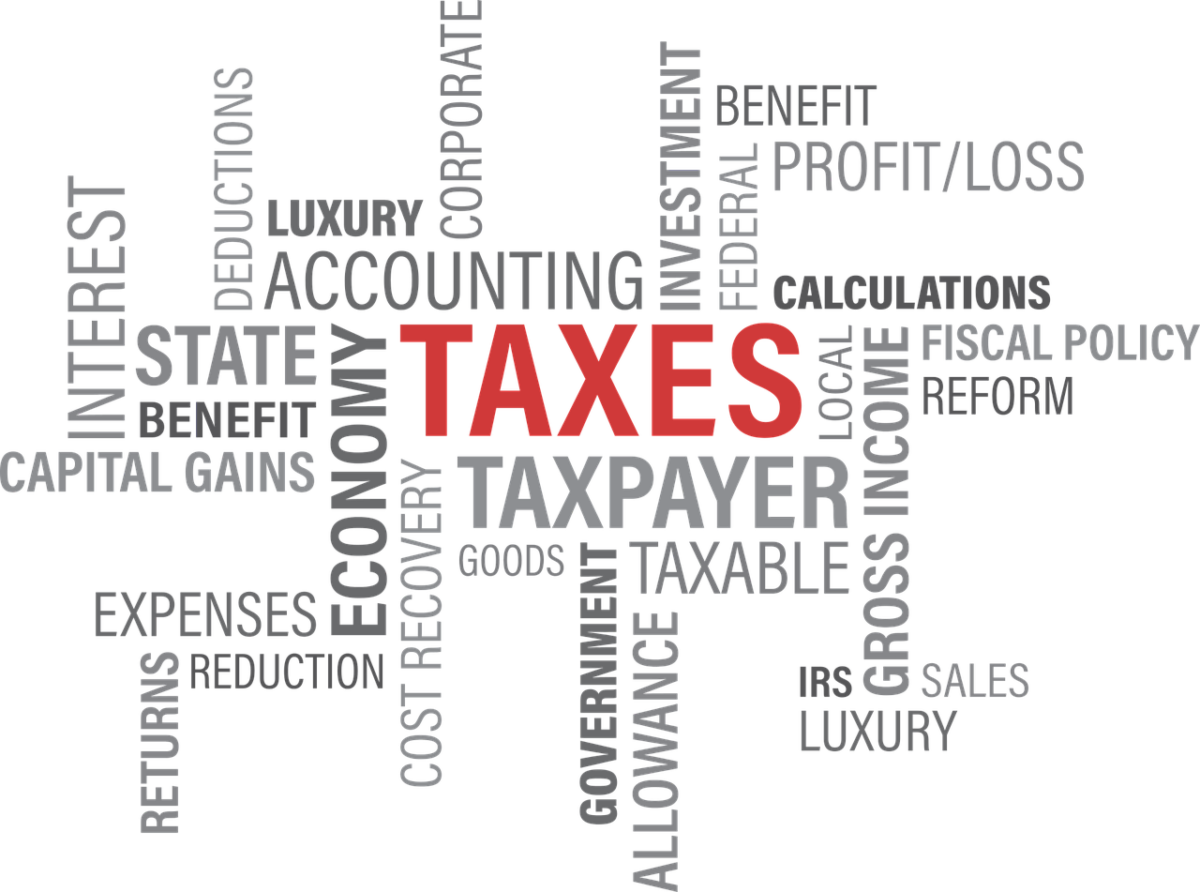Tips on Effective Debt Management for Consumers
April is National Financial Literacy Capability Month and a good time for consumers to educate
themselves about how to manage their debt. There are strategies anyone can use to pay down
debt, without considering a consolidation loan.
Stop Spending
The first step is to stop additional spending. It’s only adding to your debt problem. Take a hard
look at where your money is going. Eliminate non-essential expenses and look for other ways to
save, such as cheaper phone plans, stop eating out, and forego costly morning coffee.
Budgeting
Compile a list of what you make each month and a list of all your debt. Add up the minimum
payments. It can be helpful to divide the debt total by the 4 weeks of the month and keep an
equal amount out of each paycheck.
Credit Cards
Pay down the smallest credit card balance first. When that one is paid off, take the money you
were paying on the small balance and add it to the payment on the next smallest balance. It can
be helpful to switch a balance from a high interest card to one with a lower interest rate.
Call Creditors
Call the people you owe money to – explain that you’re having trouble paying what you owe
and why. Ask if there’s a way your payments can be reduced or if they have an available
payment plan. Some companies are willing to work with you.
Collection Calls
If you receive a call from a debt recovery company, make sure its legitimate. There are
numerous scams operating and the debt may not even be yours. Mistakes do happen.
Never make an immediate “first” payment over the phone. Ask what creditor the agency is
representing. Never make payments unless you know the creditor for which the collection
agency is working. Call the creditor to see if they’ve sent the debt to collections.
Keep a Log
Keep a log of the collection agencies that call, the date, time, and name of the person you
talked to. It's illegal for collection agency representatives to intimidate, threaten or use bad
language. Send a request via certified mail with return receipt requested, indicating they should
stop. If the agency continues to call, report it to the Federal Trade Commission.
At Peavy and Associates PC our mission is to assist you with all your tax preparations, payroll and accounting needs. We provide our clients with professional, personalized accounting services and guidance in a wide range of financial and business needs. Give us a call today (843) 347-0849 and discover why our clients return to Peavy and Associates, PC year after year!
A Personal Checklist for Tax Day
Tax day is a highly stressful event for many people, prompting them to procrastinate as long as
possible. Waiting to file yearly taxes can result in mistakes, missed deadlines and financial
penalties. Armed with a personal checklist, individuals will have the documentation they need,
filing will be easier, and tax day will be far less stressful.
Keep a Folder
Create a physical folder and place all documentation inside as the information arrives. Many
individuals use home accounting software and print-outs of pertinent information can make
filling out tax forms much easier.
Personal Information
The IRS wants very specific information about individuals. To fulfill those requirements, the
following information is required if applicable.
Social Security numbers and birthdates for all filers and dependents
Statement of earnings from all employment
Social Security received
Pension income received
Earning information from side hustles or the gig economy
Unemployment benefits
Investment income
State and local refunds
Alimony paid or received
Business or farming income
Property taxes paid
Home office expenses
Any miscellaneous income from sources such as gambling
Adjustments
There are several ways to reduce tax liability and the amount owed. Some of those include:
Student loan interest
Education expenses
Health Savings Account
IRA contributions
Self-employment health insurance expenses
Credits
Tax credits also help people lower their tax burden. Individuals will need documentation of:
Child care expenses
Adoption costs
Home mortgage interest paid
Charitable donations
Insurance reimbursements
Work expenses such as uniforms and union dues
Medical-related expenses
Energy credits
Taxes Already Paid
These can include personal property taxes, real estate taxes, and fees for vehicle licensing,
along with state and local taxes.
Miscellaneous Information
Individuals will need information about their bank accounts – both foreign and domestic – and
bank routing numbers. The IRS will need to know what account from which to deduct any taxes
owed or to deposit a refund.
At Peavy and Associates PC our mission is to assist you with all your tax preparations, payroll and accounting needs. We provide our clients with professional, personalized accounting services and guidance in a wide range of financial and business needs. Give us a call today (843) 347-0849 and discover why our clients return to Peavy and Associates, PC year after year!
12 Common Accounting Terms Explained
Accounting professionals use a variety of terms and acronyms that are common within the
industry. However, those terms may sound like a foreign language or a magical incantation to
those that aren’t familiar with them. Typically applied to businesses, they can also be relevant
in relation to individuals.
Accounts Receivable
Often abbreviated as AR, it’s the money that customers owe a business for products or services
that have been provided/delivered.
Accounts Payable
Abbreviated as AP, it’s the money a company or business owes their suppliers and vendors for
goods or services.
Assets
An asset is anything that has current or future monetary value, such as rental property, patents,
vehicles, and equipment.
Balance Sheet
It’s a financial report providing a summary of what a company owns, owes, and shareholder
equity.
Capital
Known as CAP, it represents the value of an asset such as goods or cash.
Cash Flow
CF is the revenue and anticipated expense a business expects to generate.
Equity
Referred to as QE, in its simplest form, equity is what a company has when debts (liabilities) are
subtracted from assets.
Liability
There are both long-term and short-term liabilities. A short-term liability (STL) is money owed
within a year. Long-term liabilities (LTL) are money owed over multiple years.
Limited Liability Company
LLCs have a business structure in which owners/members can’t be sued for debts or liabilities
the company incurs.
Net Income
Net income (NI) is also known as net profit. It’s the money a company makes after subtracting
all expenses from all income generated.
Return on Investment
ROI is the amount of financial gain/profit that’s expected to be made compared to the price
that was paid (invested).
IRA
An IRA or Roth IRA are retirement savings accounts. Individuals can divert pre-tax money to an
IRA and the funds aren’t taxed until they’re withdrawn. A Roth IRA isn’t tax deductible, but
funds aren’t taxed when withdrawn.
At Peavy and Associates PC our mission is to assist you with all your tax preparations, payroll and accounting needs. We provide our clients with professional, personalized accounting services and guidance in a wide range of financial and business needs. Give us a call today (843) 347-0849 and discover why our clients return to Peavy and Associates, PC year after year!
What are the Best Accounting Practices to Use for an Online Business?
Low overhead costs, greater scalability, and the ability to work from anywhere desired makes
an online business appealing. However, online business owners are subject to the same
requirements as brick-and-mortar stores.
Hire an Accountant
Many people are good at operating a business, but lack money management skills. Meeting tax
deadlines and having up-to-the-minute financial details are just some of the benefits of hiring
an accountant. The professionals have experience, strategies and highly specialized software.
They provide multiple financial services, relieve stress on owners, and enables individuals to
focus on operating their business.
Budgeting
A realistic budget is an integral part of operating any business endeavor. Doing so will tell
owners if they’re overspending, if collections are slow, and allows individuals to make
adjustments as needed.
Business Software
For those determined to take care of the financial aspects themselves, there are business
accounting software programs that can be used. However, they don’t have the specialization of
those utilized by accountants.
Entering Data
It’s critical to enter receipts, invoices and all transactions immediately to ensure accuracy. It’s
necessary to track income and expenses for tax purposes. It provides a record of business
health. Payroll will also need to be addressed if the business has employees.
Taxes
Business owners need an excellent grasp of their tax obligations and filing deadlines. There are
self-employment taxes and other expenses for which business owners are liable and for which
they must plan.
Financial Changes
Tax laws change quickly and they can adversely affect any business owner that doesn’t see
them coming. Staying informed of those changes will help individuals protect their enterprise.
Business owners must stay informed of issues affecting their industry.
Follow the Financials
Go over financial statements monthly to understand the financial state of the business. Those
statements will indicate areas where the company is doing well and where improvement is
needed.
At Peavy and Associates PC our mission is to assist you with all your tax preparations, payroll and accounting needs. We provide our clients with professional, personalized accounting services and guidance in a wide range of financial and business needs. Give us a call today (843) 347-0849 and discover why our clients return to Peavy and Associates, PC year after year!





